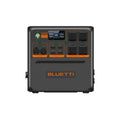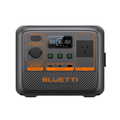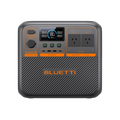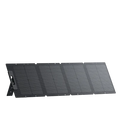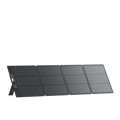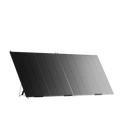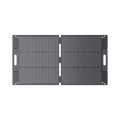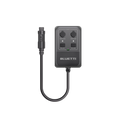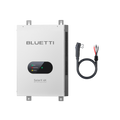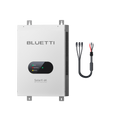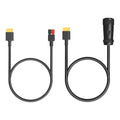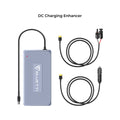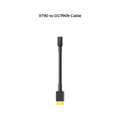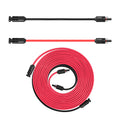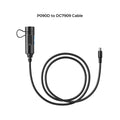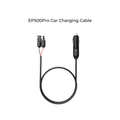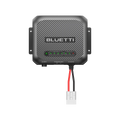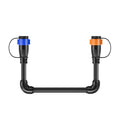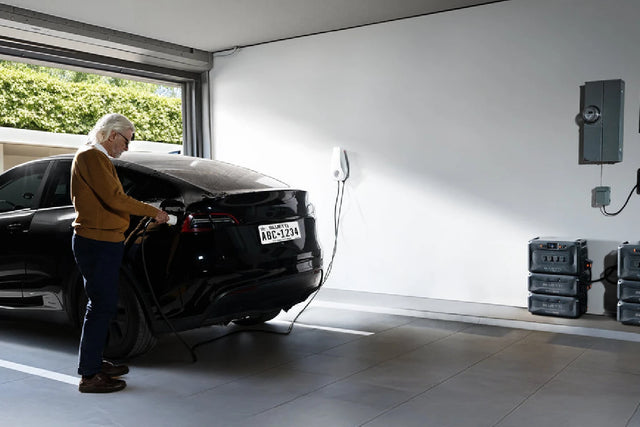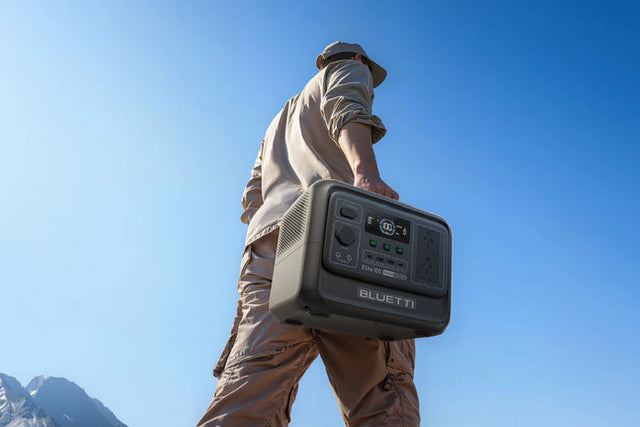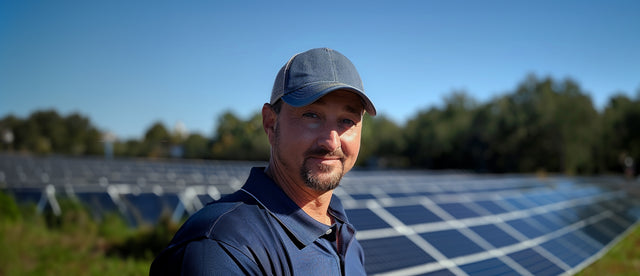Solar batteries have been making waves in the renewable energy market in recent years, with more and more homeowners considering them as a viable option for their energy needs. But what exactly are solar batteries, and are they really worth the investment? In this guide, we will delve into the world of solar batteries and explore their benefits and drawbacks. Whether you're looking to make a switch to sustainable energy or simply curious about the hype surrounding solar batteries, this article will give you all the information you need. So, let's dive in and find out if solar batteries are truly worth it for your home in Australia.
Is Investing in Solar Batteries Worth It?
Solar energy has become increasingly popular over the years as a reliable and sustainable source of electricity. With the rising concern for the environment and the need for affordable and clean energy options, solar power has become a go-to choice for many homeowners and businesses. However, a common question that arises with solar energy is the worth of investing in solar batteries. Are they really worth the extra cost? In this guide, we'll take a closer look at solar batteries, their benefits, and their costs in Australia.
The Benefits of Solar Batteries
Solar batteries, also known as solar energy storage systems, allow you to store the excess energy generated by your solar panels for later use. This means that you can still have electricity during periods of low sunlight or power outages. Here are some of the benefits of investing in solar batteries:
- Energy Independence: With solar batteries, you can reduce your reliance on the grid and become more self-sufficient when it comes to your electricity needs. This can help you save money on your electricity bills and reduce your carbon footprint.
- Energy Cost Savings: By storing excess energy from your solar panels, you can use it during peak hours when electricity rates are the highest, saving you money in the long run.
- Backup Power: Solar batteries provide a backup source of power during power outages, making them a reliable option for emergency situations.
- Increased Resale Value: Homes equipped with solar batteries are more attractive to potential buyers and can increase the resale value of your property.
Solar Battery Costs in Australia
Now that we've established the benefits of having a solar battery, let's take a look at the costs. The price of a solar battery system will depend on various factors such as the battery size, brand, and installation costs. In Australia, the average cost of a fully installed solar battery system ranges from $3,930 for a 3kWh battery to $23,760 for an 18kWh battery. The table below shows the estimated costs for different battery sizes:
| Battery Size | Battery Only Price* | Battery + Inverter/Charger** |
|---|---|---|
| 3kWh | $3,930 | $4,650 |
| 5kWh | $5,930 | $6,650 |
| 8kWh | $9,600 | $10,800 |
| 10kWh | $10,600 | $12,800 |
| 13kWh | $16,120 | $18,070 |
| 18kWh | $23,760 | $26,280 |
*Battery Only Price: This is the cost of the battery unit itself. It does not include installation costs or any additional equipment needed for the system to function.
**Battery + Inverter/Charger: This includes the cost of the battery unit, installation, and any additional equipment needed, such as an inverter/charger, for the system to work efficiently.
Factors That Affect Solar Battery Costs
The cost of a solar battery system can vary depending on several factors, including:
- Battery Size: As shown in the table above, the larger the battery size, the higher the cost.
- Battery Type: There are different types of batteries available, such as lead-acid, lithium-ion, and flow batteries, all with varying costs.
- Inverter/Charger Type: The type and size of the inverter/charger needed for the battery system can also affect its overall cost.
- Brand: Different brands offer different prices for their solar batteries, with some being more expensive than others.
- Installation Costs: The cost of installation can vary depending on the complexity of the installation process and the location of your home.
Solar batteries can be a valuable addition to your solar energy system, providing you with numerous benefits such as energy independence, cost savings, and backup power. However, as with any investment, it's essential to consider the costs and factors that can affect them before making a decision. With the average cost of a fully installed solar battery system in Australia ranging from $3,930 to $23,760, it's essential to weigh the costs against the potential benefits to determine if it's worth it for your specific needs and budget.
How much does a solar battery cost in 2024?
Solar batteries have become increasingly popular in Australia over the years, as more and more households and businesses look towards sustainable energy options. With rising electricity costs and concerns about climate change, people are turning to solar batteries as a way to save money and reduce their carbon footprint. However, many are still unsure if solar batteries are worth the investment. In this guide, we will explore the benefits and costs of solar batteries in Australia, allowing you to make an informed decision about whether they are worth it for you.
The Benefits of Solar Batteries
There are several benefits to installing a solar battery system for your home or business:
| Benefit | Description |
|---|---|
| 1. Energy Independence | With a solar battery, you can store excess solar energy generated during the day and use it at night. This reduces your reliance on the grid and gives you more control over your energy usage. |
| 2. Lower Electricity Bills | By using stored solar energy instead of purchasing it from the grid, you can significantly reduce your electricity bills. |
| 3. Reduced Carbon Footprint | Solar batteries allow you to use clean, renewable energy instead of relying on fossil fuels. This helps to reduce your carbon footprint and contribute to a more sustainable future. |
Solar Battery Costs in Australia
As with any technology, the cost of solar batteries has decreased over the years as it becomes more mainstream. According to a report by SolarQuotes, in 2020, the average price for a solar battery in Australia was around $10,000. However, this cost can vary depending on factors such as battery brand, size, and capacity.
Looking ahead to 2024, it is expected that the cost of solar batteries will continue to decrease as technology improves and more companies enter the market. Here is a table showing the estimated starting cost and power capacity for some popular solar batteries in Australia in 2024:
| Battery | Starting Cost | Power Capacity (kilowatt-hour) |
|---|---|---|
| BLUETTI AC300+B300 | $4,998 | 3kWh (Expandable up to 12kWh) |
| Tesla Powerwall 2 | $8,400 | 13.5 kWh |
| LG 10H Prime | $6,000 | 9.6 kWh |
| Generac PWRcell | $10,000 | 3 kWh |
| sonnenCore+ | $10,300 | 10 kWh |
| SunPower SunVault | $16,000 | 13 kWh |
It's essential to note that the cost of solar batteries does not include installation and other associated costs, which can add a few thousand dollars to the overall expense. However, with the potential savings on electricity bills, many people still find that investing in a solar battery is worth it in the long run.
Is Investing in a Solar Battery Worth It?
The answer to this question ultimately depends on your individual circumstances and goals. If you live in an area with high electricity rates and receive plenty of sunlight, a solar battery can be a wise investment. It can help you save money on electricity bills and reduce your carbon footprint.
However, if you live in an area with low electricity rates and have limited access to sunlight, a solar battery may not be as financially beneficial. It's essential to do your research and consider your energy usage patterns before deciding if a solar battery is worth it for you.
Solar batteries can bring many benefits to households and businesses in Australia, including energy independence, lower electricity bills, and a reduced carbon footprint. While the initial investment may seem steep, the cost of solar batteries is expected to continue to decrease, making it a more feasible option for many. However, it's crucial to consider your individual circumstances and energy usage before deciding if a solar battery is worth it for you. With the right research and planning, a solar battery can be a valuable addition to your sustainable energy journey.

Are solar batteries worth the price and do you need one?
One of the key factors to consider when deciding whether to invest in a solar battery is your electricity usage and needs. If you frequently experience power outages, a solar battery can be a lifesaver. With a battery, you can store excess energy generated by your panels during the day and use it during a blackout, ensuring that your home remains powered even during unexpected outages. This can be especially useful for areas prone to extreme weather conditions or for households with medical equipment that requires constant power supply.
Additionally, if you are looking to go completely off the grid with solar energy, then a battery is a necessary component of your system. Without a battery, you will be solely reliant on the grid for electricity during the night or on cloudy days. With a battery, you can store any excess energy generated during the day and use it at night, reducing your reliance on the grid and increasing your energy self-sufficiency.
For those who are on a time-of-use energy plan, a solar battery can also be a valuable investment. Time-of-use plans charge different rates for electricity based on the time of day, with peak hours being more expensive. With a battery, you can store energy during off-peak hours when electricity is cheaper and use it during peak hours when prices are higher. This can significantly reduce your electricity bills and save you money in the long run.
Now, let's talk about the cost of solar batteries in Australia.
The most common type of battery used for solar storage is the lithium-ion battery, which has been on a similar trajectory as solar panels in terms of cost reduction. According to a report by the International Renewable Energy Agency (IRENA), the cost per kilowatt-hour (kWh) of individual battery cells has fallen by 97% from 1991 to 2018. This means that solar batteries have become more affordable and accessible for households, making them a viable option for energy storage.
However, it is important to note that the upfront cost of a solar battery can still be significant. The cost can vary depending on the size and storage capacity of the battery and can range from a few thousand dollars to tens of thousands of dollars. Therefore, it is crucial to consider your energy usage and needs before investing in a solar battery to ensure that you are getting the most value for your money.
the decision to invest in a solar battery ultimately depends on your energy usage, needs, and budget. If you frequently experience power outages, want to go off the grid, or are on a time-of-use plan, a solar battery can be a beneficial addition to your solar energy system. With the cost of solar batteries decreasing and the technology constantly improving, they are a worthwhile investment for those looking to reduce their reliance on the grid and save money on their electricity bills. However, it is important to assess your energy needs and consider the upfront cost before making a decision.
Average Solar Cost Per kWh in Australia - May 2024
Solar energy has become an increasingly popular alternative to traditional electricity in Australia. With the continuous advancements in technology and increasing concerns about climate change, many households and businesses are turning to solar power to reduce their carbon footprint and save on their energy bills. However, one of the main questions that arise when considering solar energy is whether it is worth investing in solar batteries. In this article, we will delve into the prices and information about solar batteries in Australia to help you make an informed decision.
To understand the cost of solar batteries, we need to first understand the concept of solar energy. Solar panels are responsible for converting sunlight into electricity, which can then be used to power homes or businesses. However, the energy produced by the panels is not constant and depends on factors such as weather and time of day. This is where solar batteries come in - they store excess energy produced during the day and ensure a continuous supply of electricity, even when the sun is not shining.
The cost of solar batteries varies depending on the location, size of the system, and type of battery. To give you an idea, we have compiled the average solar cost per kWh in Australia for May 2024. These prices are based on a standard 10-year warranty.
| System Size | Adelaide, SA | Brisbane, QLD | Canberra, ACT | Darwin, NT | Hobart, TAS | Melbourne, VIC | Sydney, NSW | Perth, WA | All |
|---|---|---|---|---|---|---|---|---|---|
| 3kW | $3,860 | $3,770 | $4,300 | $4,730 | $4,560 | $3,830 | $3,790 | $3,450 | $4,040 |
| 4kW | $4,140 | $4,370 | $4,470 | $6,780 | $5,410 | $4,180 | $4,130 | $3,990 | $4,680 |
| 5kW | $4,850 | $4,790 | $4,940 | $7,600 | $6,070 | $4,720 | $4,770 | $4,360 | $5,260 |
| 6kW | $5,510 | $5,200 | $5,440 | $9,320 | $6,700 | $5,130 | $4,920 | $5,430 | $5,960 |
| 7kW | $6,280 | $6,150 | $6,420 | $10,060 | $7,490 | $6,030 | $5,960 | $6,120 | $6,810 |
| 10kW | $8,500 | $8,710 | $8,390 | $13,060 | $10,540 | $8,040 | $7,880 | $9,580 | $9,340 |
As shown in the table above, the cost of solar batteries per kWh increases with the size of the system. This is because larger systems require larger and more expensive batteries to store the excess energy produced. On average, the cost per kWh for a 3kW system ranges from $3,450 in Perth to $4,850 in Adelaide, while for a 10kW system, it ranges from $7,880 in Sydney to $13,060 in Darwin.
It is also worth noting that the prices shown are for May 2024, and they may vary depending on the market conditions and the specific retailer. Prices may also increase or decrease in the future as technology continues to evolve and the demand for solar energy increases. However, investing in solar batteries now can provide long-term savings on energy bills and reduce the reliance on traditional electricity.
Despite the initial cost, solar batteries can provide a return on investment (ROI) within 5 to 10 years, depending on the size of the system and the electricity usage. This means that after the ROI period, the energy produced by the solar panels and stored in the batteries will essentially be free, resulting in significant savings on electricity bills over the years.
Furthermore, solar batteries can also provide backup power during blackouts or other emergencies, ensuring a continuous supply of electricity. This is particularly beneficial for businesses that rely heavily on electricity to operate.
while the initial cost of solar batteries may seem high, they can provide long-term savings and a reliable and sustainable source of energy. The prices for solar batteries in Australia are expected to decrease in the future as technology advances, making them a worthwhile investment for households and businesses alike.

Are solar batteries worth the investment? This is a question that many Australians are asking as the popularity of solar power grows and technology advances. With the increasing adoption of renewable energy sources, the need for effective storage solutions has also become more important. This is where solar batteries come in.
The rise of battery plus inverter systems
One of the most common ways to integrate battery storage into a solar system is by combining it with an inverter. This type of system, known as battery plus inverter, allows for seamless integration and efficient energy management. However, the cost of these systems has been a major factor in the decision-making process for many homeowners.
Currently, the average cost of a battery plus inverter system in Australia is around $800-$900 per kilowatt-hour (kWh). While this may seem like a hefty price tag, it is important to consider the long-term benefits. With the right combination of circumstances, payback periods for these systems can be as short as 10 years, making it a worthwhile investment for many Australians.
How to determine if a battery plus inverter system is worth itThe decision to invest in a battery plus inverter system ultimately depends on several factors, including your energy usage, electricity rates, and the cost of the system itself. It is important to calculate the potential savings and payback period before making a decision.
If you are considering a battery plus inverter system, it is recommended to consult with a reputable solar installer who can assess your energy needs and provide you with personalized recommendations.
Prices for batteries only installations
If you already have a solar system installed and are looking to add battery storage, you have the option to purchase a standalone battery system. Prices for these "battery only" installations have remained relatively consistent in recent months, but the overall cost still remains a significant factor for homeowners.
However, for those in the market for a new solar system, it may be worth considering adding a battery bank to your installation. According to recent data, a 5kW solar system paired with a 5kWh battery bank could cost as little as $10,000, depending on your location and product choices.
This price is significantly lower compared to the cost of retrofitting a battery onto an existing solar system, making it a more enticing option for those looking to invest in solar and battery storage.
The Best Choice for Solar Batteries in Australia: BLUETTI AC300 +B300
When it comes to choosing a solar battery in Australia, there are many options available. However, one brand that stands out is BLUETTI and their AC300 +B300 solar battery. This powerful and versatile system offers a wide range of features and benefits that make it a top choice for both residential and commercial use.Capacity
The BLUETTI AC300 +B300 solar battery has a capacity of up to 12,288Wh, making it one of the most powerful options on the market. This is possible thanks to its expandable design that allows for the addition of four B300 batteries. With this much capacity, you can power multiple appliances and devices for extended periods without worrying about running out of energy.
Inverter
The inverter in the BLUETTI AC300 +B300 system is a 3,000W AC pure sine wave inverter with a 6,000W surge capacity. This means that it can handle high-power appliances and devices without any issues. The pure sine wave also ensures a clean and stable energy output, making it safe for sensitive electronics.
Battery Life
The battery in the BLUETTI AC300 +B300 is made of lithium iron phosphate, which offers a longer lifespan compared to other battery chemistries. It has a cycle life of 3,500+ cycles, meaning it can be charged and discharged more than 3,500 times before reaching 80% of its original capacity. This makes it a reliable and long-lasting option for energy storage.
Charging Speed
One of the standout features of the BLUETTI AC300 +B300 is its turbo charge capability. With both AC and DC charging options available, this system can reach 80% capacity in just 45 minutes. This is thanks to its 5,400W charging speed, making it one of the fastest-charging solar batteries in Australia.
UPS Mode
The BLUETTI AC300 +B300 also has a UPS (uninterruptible power supply) mode, which allows for millisecond-level switching between grid and battery power. This means that if there is a power outage, the system will automatically switch to battery power, ensuring a continuous supply of electricity without any interruption.
Portability
For those who need a solar battery that can be easily transported, the BLUETTI AC300 +B300 is the perfect choice. Its modular design makes it easy to move and set up in different locations, making it ideal for camping trips or emergency situations.
Installation
Unlike traditional solar battery systems that require complex installation processes, the BLUETTI AC300 +B300 is designed for easy plug and play installation. This means that you can save on installation fees and have the system up and running in no time.
Energy Management
The BLUETTI AC300 +B300 also offers peak shaving and valley filling capabilities, which is especially useful for those living in areas where there is a price difference between peak and off-peak electricity periods. With the ability to store excess energy generated during off-peak hours and using it during peak hours, you can significantly reduce your electricity costs.
Solar Power
One of the most appealing aspects of the BLUETTI AC300 +B300 is its ability to combine flexible solar panels as a solar power generation and energy storage system. This not only makes it an environmentally friendly choice but also allows for significant cost savings on electricity bills.
Noise Level
Unlike fuel generators, the BLUETTI AC300 +B300 has a noise level of just 45 dB, which is relatively low and does not produce the same level of noise pollution. This makes it suitable for use in residential areas without causing disturbance to others.
Applications
The BLUETTI AC300 +B300 has a wide range of applications, including home backup, RV power, and DIY workshops. Its versatility and powerful capabilities make it an excellent choice for both personal and professional use.
the BLUETTI AC300 +B300 solar battery is undoubtedly worth considering for anyone looking for a reliable, powerful, and versatile energy storage system in Australia. Its impressive features, easy installation, and cost-saving capabilities make it a top choice for both residential and commercial applications.
1. What type of solar battery is best for my energy needs?
When considering investing in a solar battery, it is important to determine which type would best suit your energy needs. There are several types of solar batteries available in the market, each with its own unique features and capabilities.
The first type is the lead-acid battery, which is the most commonly used and affordable option. It is suitable for smaller energy needs and is available in flooded, sealed, and gel varieties. However, these batteries require regular maintenance and have a shorter lifespan compared to other types.
Lithium-ion batteries are another popular choice for solar energy storage. They have a longer lifespan, faster charging time, and are more compact than lead-acid batteries. However, they are more expensive and may not be suitable for larger energy needs.
Saltwater batteries are a newer type in the market and are known for their durability and safety. They have a longer lifespan and require minimal maintenance. However, they are still relatively expensive and may not be suitable for every budget.
The type of solar battery that would be best for your energy needs depends on factors such as your budget, energy usage, and space availability. It is recommended to consult a solar energy expert who can assess your specific needs and recommend the best type of battery for you.
the best type of solar battery for your energy needs would depend on various factors and it is important to seek professional guidance before making a decision.
2. How long do solar batteries typically last and what is their warranty?
The lifespan of solar batteries varies depending on factors such as usage, maintenance, and the brand. On average, most solar batteries are expected to last anywhere from 5 to 20 years. However, some high-quality batteries may have a longer lifespan of 20 to 30 years. It is important to note that the capacity of the battery will also decrease over time, meaning it may not be able to hold as much energy as it did when it was first installed.
As for warranties, they also vary among different brands and models. Typically, solar batteries come with a warranty of 5 to 10 years. Some companies may offer extended warranties for an additional cost. It is important to carefully read and understand the terms and conditions of the warranty, as it may not cover all types of damage or malfunction.
In Australia, the warranties for solar batteries are regulated by the Australian Consumer Law. This ensures that consumers are protected and can confidently invest in solar batteries knowing that they are covered in case of any defects or issues. the lifespan and warranty of a solar battery are important factors to consider when determining if they are worth it in the long run.
3. Are there any government incentives or rebates available for installing a solar battery?
In recent years, the Australian government has recognized the potential of solar energy and has implemented various incentives and rebates to encourage homeowners to switch to renewable energy sources. This extends to solar batteries as well, with the government offering several schemes to make the installation of solar batteries more affordable.
One of the most significant incentives is the Federal Government's Small-scale Renewable Energy Scheme (SRES), which provides homeowners with Small-scale Technology Certificates (STCs) for installing eligible renewable energy systems, including solar batteries. The number of STCs given depends on the size and type of the system, and these certificates can then be sold or traded to help cover the upfront cost of installation.
Additionally, some state governments also offer their own incentives and rebates for solar battery installations. For example, the South Australian Home Battery Scheme provides subsidies to eligible households for the purchase of solar batteries, making it more accessible and affordable for residents to invest in renewable energy storage.
It is essential to note that these incentives and rebates may vary depending on your location and the type of solar battery system you choose. Therefore, it is crucial to research and consult with a reputable solar installer to determine the specific government incentives and rebates applicable to your situation.
In summary, there are various government incentives and rebates available for installing solar batteries in Australia, making it a more cost-effective and worthwhile investment for homeowners.
solar batteries can definitely be worth the investment, depending on your individual circumstances and energy needs. While they do come at an additional cost, they offer several benefits that can make them a valuable addition to your solar system.
Firstly, solar batteries allow you to store excess solar energy generated during the day for use at night or during peak demand periods. This means you can reduce your reliance on the grid and potentially save on electricity bills. With the rising cost of electricity in Australia, this can be a significant advantage.
In addition, solar batteries can provide backup power during blackouts or emergencies, ensuring that your essential appliances and devices can still function. This is especially important for those living in remote or rural areas where power outages may be more common.
Moreover, investing in a solar battery can also increase your self-sufficiency and reduce your carbon footprint. By utilizing more of your own solar energy, you become less dependent on traditional fossil fuels, which can have a positive impact on the environment.
However, it is important to note that solar batteries may not be necessary for everyone. If you live in an area with reliable electricity supply and have a small solar system, the cost of a battery may outweigh the potential savings. It is crucial to do your research and consult with a reputable solar installer to determine if a battery is the right choice for your home.
In terms of prices, solar batteries range from a few thousand dollars to tens of thousands of dollars, depending on the size and brand. It is important to factor in the upfront cost, ongoing maintenance and replacement costs to determine the overall return on investment.
To make the most out of your solar battery, it is also important to consider the type of battery and its specifications, as well as your energy usage patterns. A reputable solar installer can provide you with a tailored recommendation based on your specific needs.
solar batteries can be a valuable addition to your home's solar system, providing you with more control over your energy usage and potentially saving you money in the long run. However, it is essential to carefully weigh the costs and benefits before making a decision.


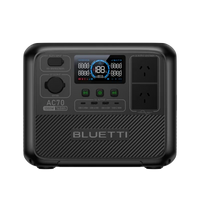
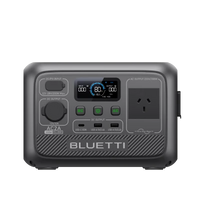
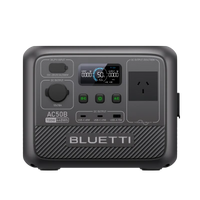

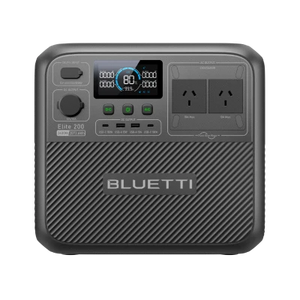
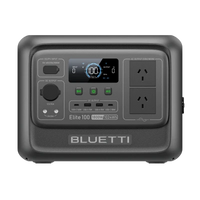
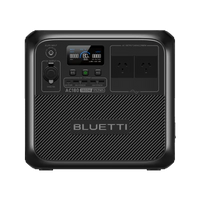
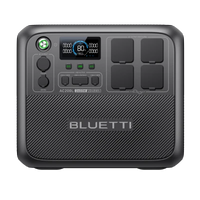
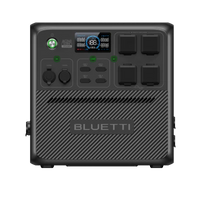
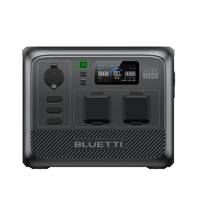
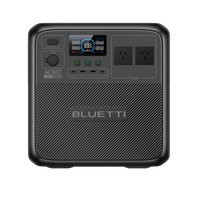


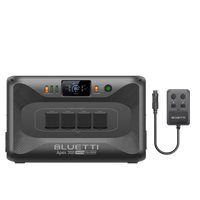

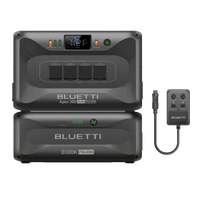
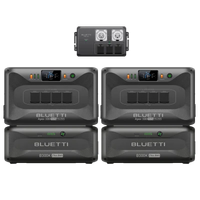
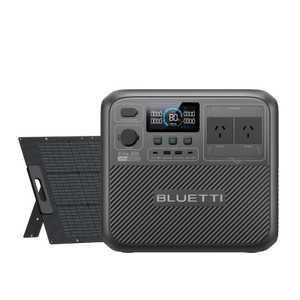
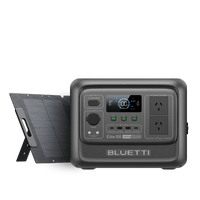
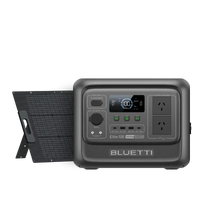
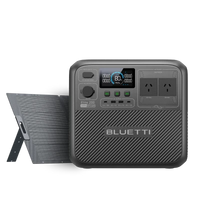
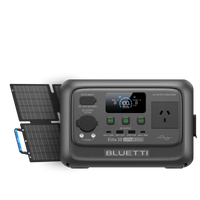
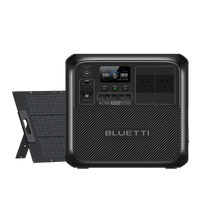
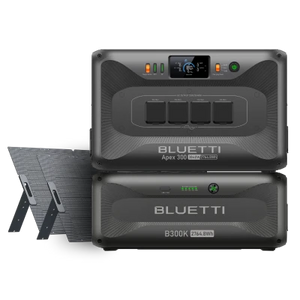
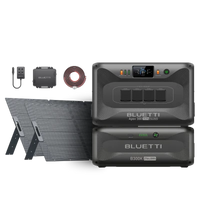
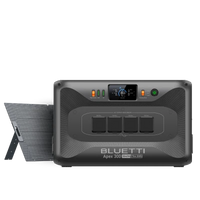
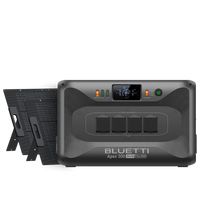
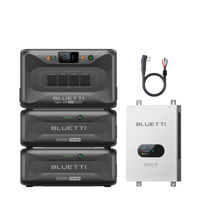

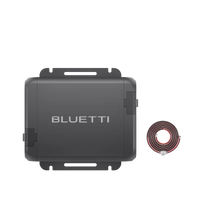
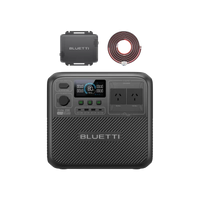
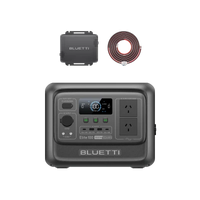
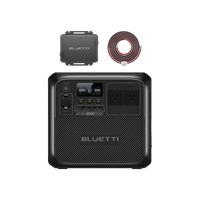
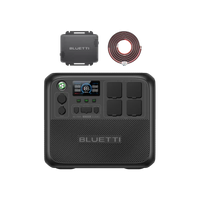
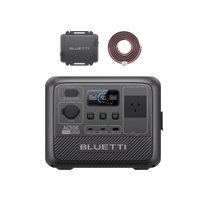
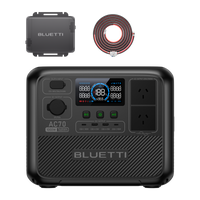


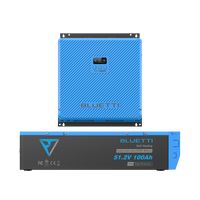
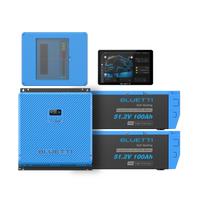
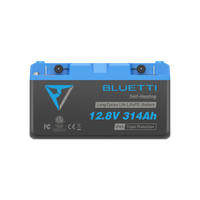
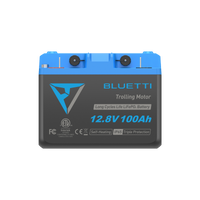
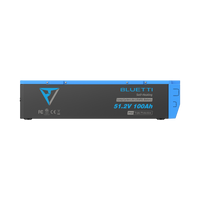
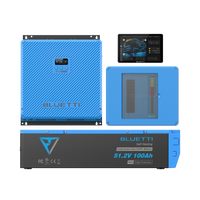
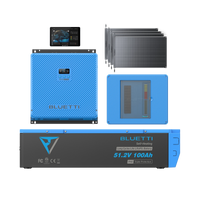
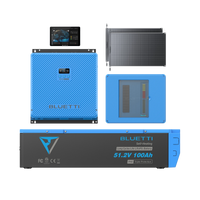
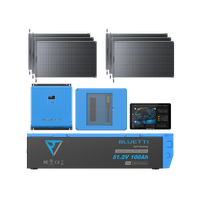




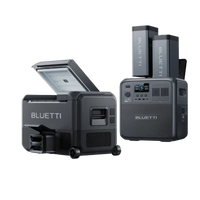
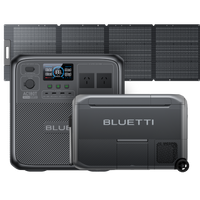
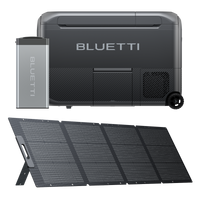
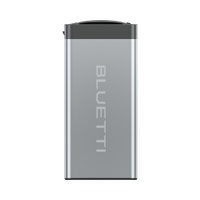
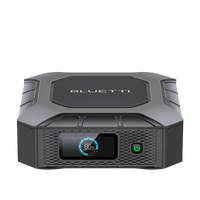
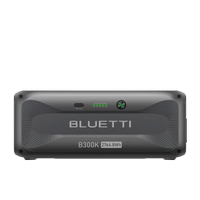

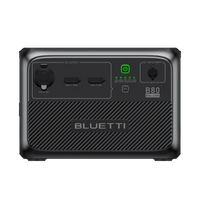
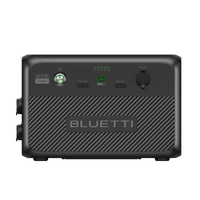

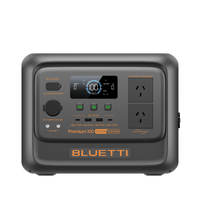
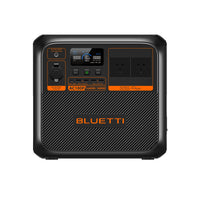

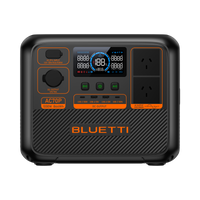
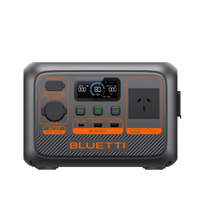
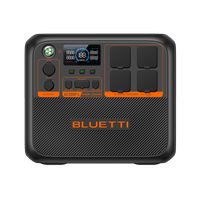
![[Phased Out] BLUETTI B80P Expansion Battery | 806Wh](http://www.bluettipower.com.au/cdn/shop/files/202310025B80P_2000-2000px_4_4caa0c1c-4dab-4272-9e9b-2b7507e5bd81.jpg?v=1713777870&width=200)
![[Phased Out] BLUETTI B210P Expansion Battery | 2,150Wh](http://www.bluettipower.com.au/cdn/shop/files/2_08cf9ef3-03a4-4489-b641-d3edb8094896.webp?v=1716016566&width=200)
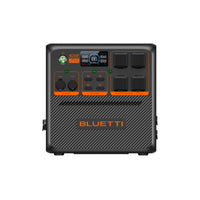
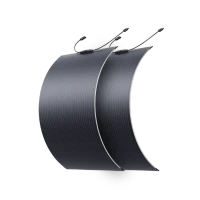
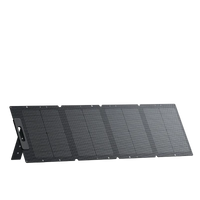
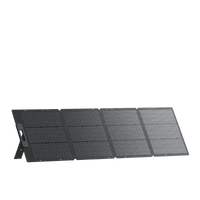
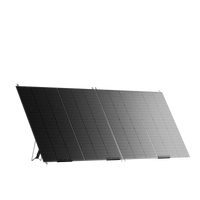

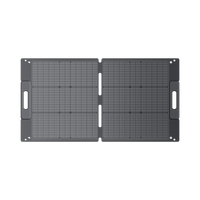

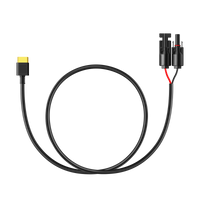
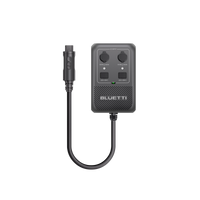
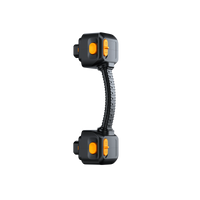
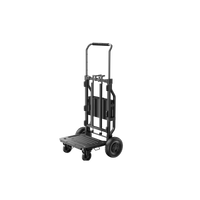
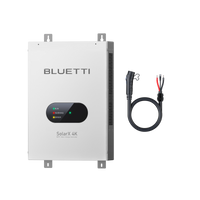
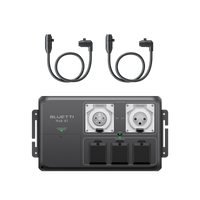
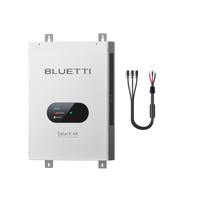
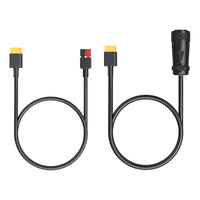
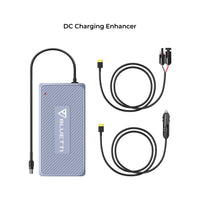

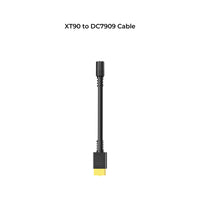
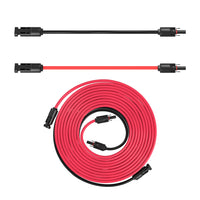
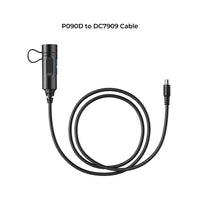
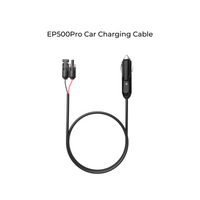
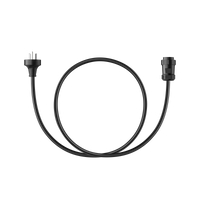
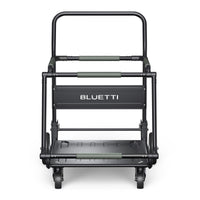
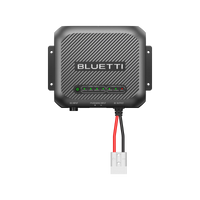
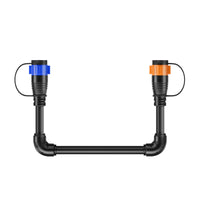



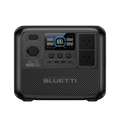
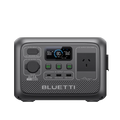
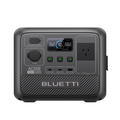


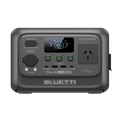
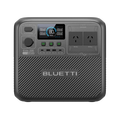
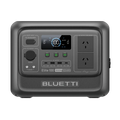
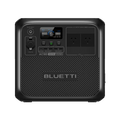
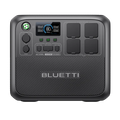
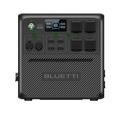
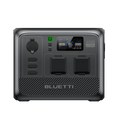
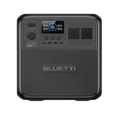


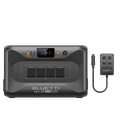

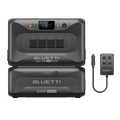
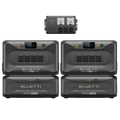




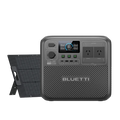
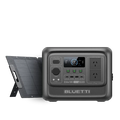
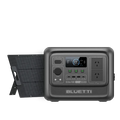
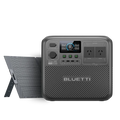
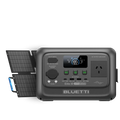
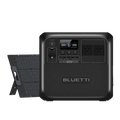
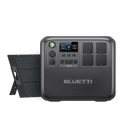
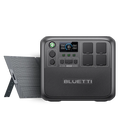




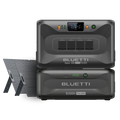
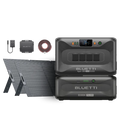
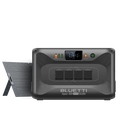
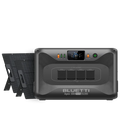
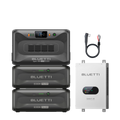


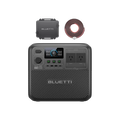
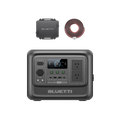
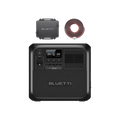

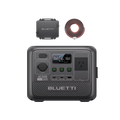
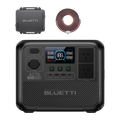
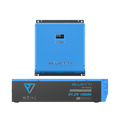
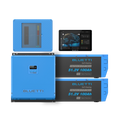
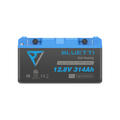
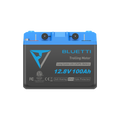










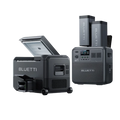
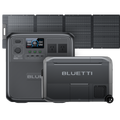



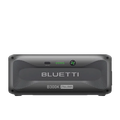

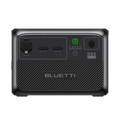
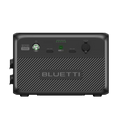


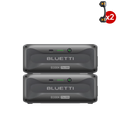
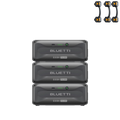




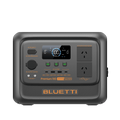
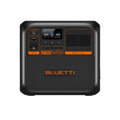

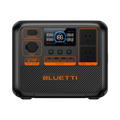
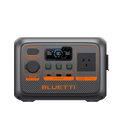

![[Phased Out] BLUETTI B80P Expansion Battery | 806Wh](http://www.bluettipower.com.au/cdn/shop/files/202310025B80P_2000-2000px_4_4caa0c1c-4dab-4272-9e9b-2b7507e5bd81.jpg?v=1713777870&width=120)
![[Phased Out] BLUETTI B210P Expansion Battery | 2,150Wh](http://www.bluettipower.com.au/cdn/shop/files/2_08cf9ef3-03a4-4489-b641-d3edb8094896.webp?v=1716016566&width=120)
